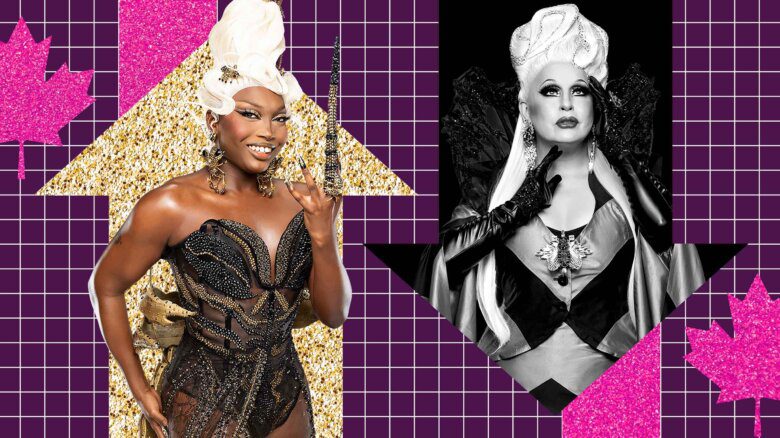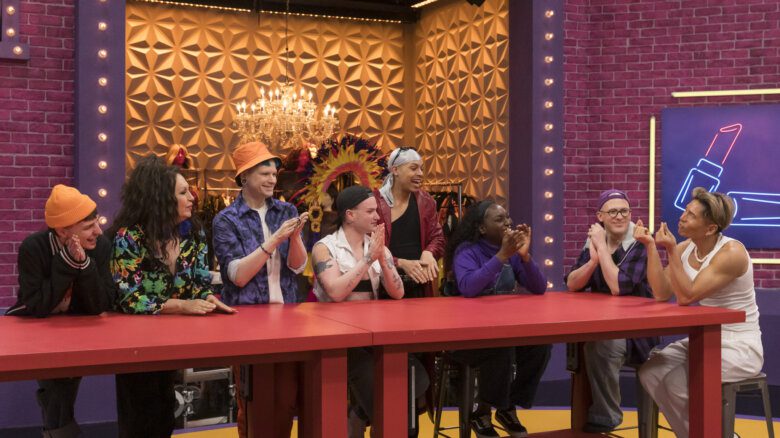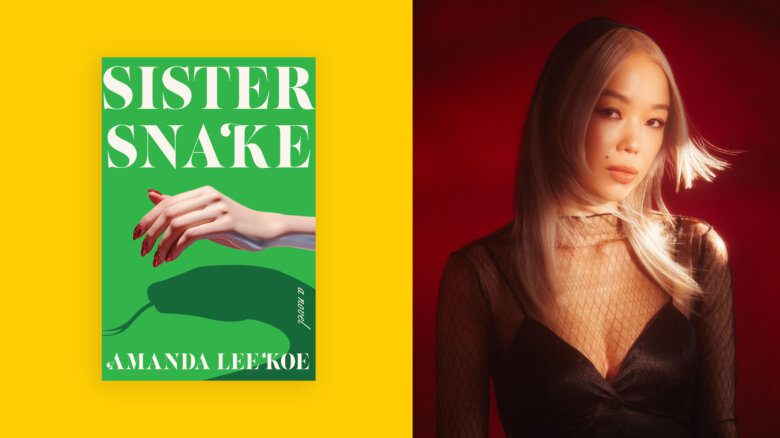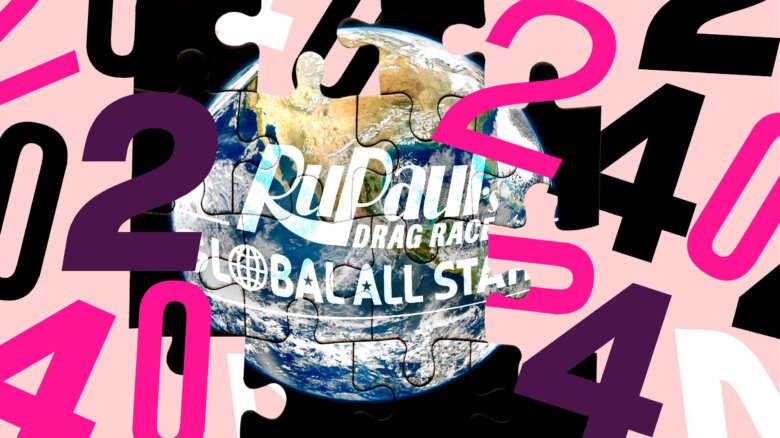Another year, another opportunity for greatness—or failure. For our beloved queers and the people who were obsessed with them in 2021, there was a smorgasbord of fun and flop. And what would our second year in this pandemic hellscape be without a bit of both?
We jumped into the year with hope: if 2020 was a dystopian trash heap, 2021 was a chance to sweep up the debris and start anew. The wins came steadily over time, our mighty queens dazzling parliaments worldwide, earning gold medals on the Olympic soccer pitch and making us swoon and chuckle at the TV screen. Optimism prevailed.
But we’d be remiss to forget optimism’s bitchy cousin, pessimism. As we searched for hope in the darkest of days, American lawmakers overwhelmed us with anti-trans bills, Caitlyn Jenner showed up again just to be catty and Netflix, our go-to distraction in the midst of all of this, betrayed us.
It wouldn’t have been 2021 without our righteous queens and shady bitches. For the second year in a row, Xtra has compiled our list of 2021 newsmakers, celebrating the GOATs and condemning the flops.
Righteous queens 
Blake Desjarlais and Canada’s queerest parliament of all time
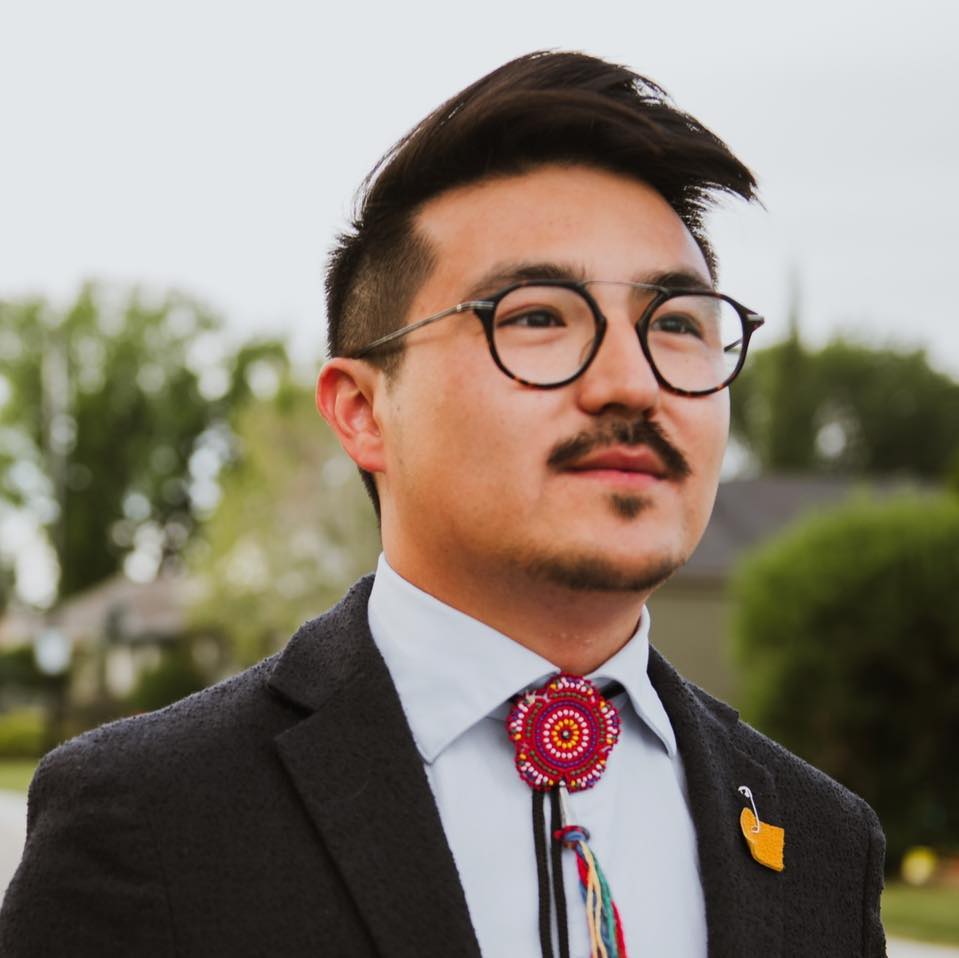
Credit: Blake Loates
For years (and several election cycles), LGBTQ2S+ Canadians learned to lower their expectations when it came to representation in Parliament. Even when members of our communities ran campaigns in droves, they often found themselves in ridings that were nearly impossible to win—and party leaders did little to help them. So, when Justin Trudeau called an election this summer in the midst of a raging pandemic, no one anticipated much change. After all, fewer openly LGBTQ2S+ candidates were running across the country than in 2019.
But against all odds, LGBTQ2S+ representation won. Eight openly queer candidates were elected—double the number elected in 2019. Among them is Edmonton’s Blake Desjarlais, Canada’s first Two-Spirit MP. Desjarlais’ historic win denotes a shift in Canadian politics: Parliament is finally a place where a more diverse Canada can be represented by its elected officials. It’s also a reassurance for the young LGBTQ2S+ politicos someday dreaming of becoming an elected official themselves. As Desjarlais put it to Xtra’s Mel Woods this fall: “We need you so bad. Our society has never needed young queer folks more than it does now.” We need you, too, Desjarlais.
—Erica Lenti, senior editor
Tomson Highway and a new generation of Indigiqueer artists
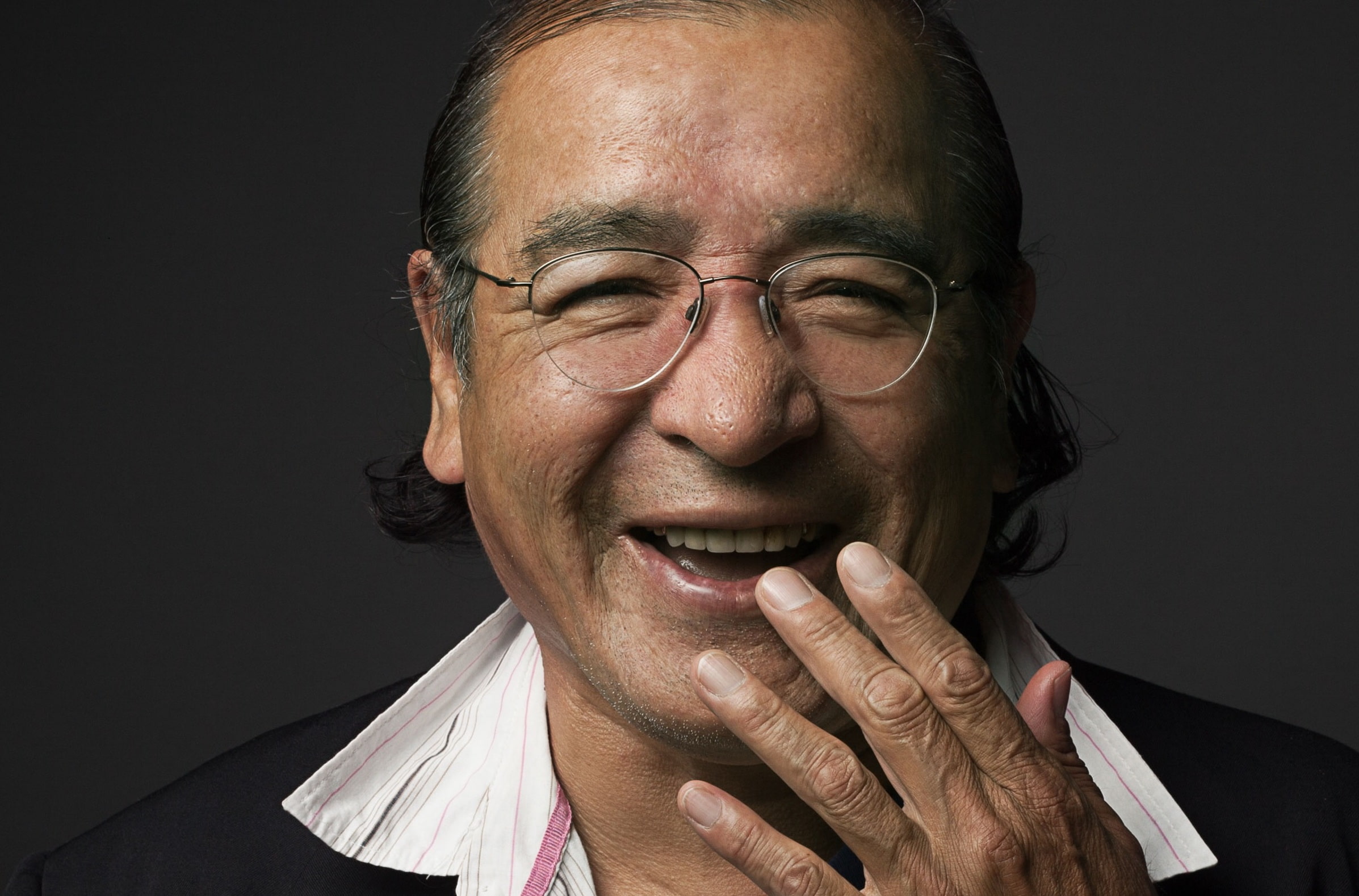
Credit: Sean Howard
Tomson Highway is a towering cultural figure in Canada. Born on a snowbank near Reindeer Lake in northern Manitoba in 1951, Highway would go on to become the country’s preeminent Indigenous writer with seminal plays like The Rez Sisters and Dry Lips Oughta Move to Kapuskasing. An autobiographical novel, opera libretti, children’s books, more plays and other musical outings followed. At 70, the Two-Spirit Cree writer is still going strong; 2021 was a banner year. There was a streaming production by the Royal Manitoba Theatre Centre (RMTC) of Highway’s musical The (Post) Mistress, a remount of The Rez Sisters at the Stratford Festival (another remount is scheduled for next spring at RMTC) and his award-winning memoir, Permanent Astonishment, was published in the fall. The new memoir, the first in a planned series, evokes in shimmering detail the lost idyll of young Tomson’s childhood growing up in the northern bush.
In his interview with Xtra contributing editor Paul Gallant, Highway spoke of his legacy. “My work as an artist is only secondary. My real work is that I’m still a social worker,” Highway said. “I’m here to work with the spirit of the community. The third gender [Two-Spirit], their responsibility became the emotional and spiritual life of the community, which is where the shamans and the visionaries and the artists are. That’s who we are. We are here to take care of the emotional and spiritual life of our community. And because the artistic production has grown so, so much in the past 40 years, that’s what’s happening. We’re healing the spirit of the community. That’s our job. And that’s my real job.”
Highway’s career is a catalogue of firsts; his legacy is the efflorescence of queer, trans and Two-Spirit Indigenous art evident across Turtle Island. From the small screen of Mary Galloway’s online queer love drama Queerencia to Bretten Hannam’s big-screen road movie Wildhood and the indie media art of Raven Two Feathers; from the hard-hitting poetry of jaye simpson to the hair-raising prog rock duo Crown Lands; from the wild drag scene of Winnipeg to the Indigenous community builders of Alaska, 2021 proved a stellar year for LGBTQ2S+ Indigenous art and culture. The future is indeed Indigiqueer.
—Gordon Bowness, executive editor
Bilal Baig and the creators queering the small screen

Credit: Courtesy of CBC
As Sabi Mehboob, the brown, non-binary, twentysomething at the centre of the CBC TV series Sort Of, Bilal Baig embodies the indefiniteness of the show’s title. Sabi is noncommittal and almost frustratingly deadpan. Drifting through life picking up gig work as a nanny and a bartender, with a shiftless boyfriend and a mother they don’t think will understand them, Sabi feels at first like a collection of millennial clichés and signifiers.
But Baig, who co-created the series with Fab Filippo, aims at—and strikes—much deeper themes than your typical short-run, half-hour comedy. Sort Of is a deeply moving and sharply crafted series about the inescapable flux of life and death, about transitions of all kinds and about the losses that coexist with liberation. (It’s also extremely funny.) As the season-long story arc resisted easy conclusions and assumptions, Baig grounds every scene with quiet, can’t-take-your-eyes-off-them charisma. It’s a standout performance for the breakout TV star of 2021.
Baig wasn’t the only LGBTQ2S+ creator and performer queering our small screens this past year with representations that defied stereotypes and expanded television storytelling conventions. In the second seasons of their semi-autobiographical shows, Mae Martin (Feel Good), Abby McEnany (Work in Progress) and Ryan O’Connell (Special) used comedy to delve into themes of parental conflict, mental illness, falling in and out of love, sexual compatibility and trauma. And the third season of Master of None was devoted a nuanced examination of the up-and-down relationship of a Black, queer couple played by Lena Waithe and a scene-stealing Naomi Ackie.
And one of the most unexpectedly resonant TV depictions of how queer life felt in 2021 happened to be set in the early 1980s: Russell T. Davies’s series, It’s a Sin, which follows a group of exuberant, young queer friends at the onset of the AIDS epidemic in London, England. Watching these kids throwing themselves into gay life with abandon just as the world was falling apart was a reminder, in some of the lonelinest and hardest days of the COVID-19 pandemic, to put faith in community, to celebrate love and to never stop fighting.
—Rachel Giese, editorial director
Quinn and the year of very queer athletes
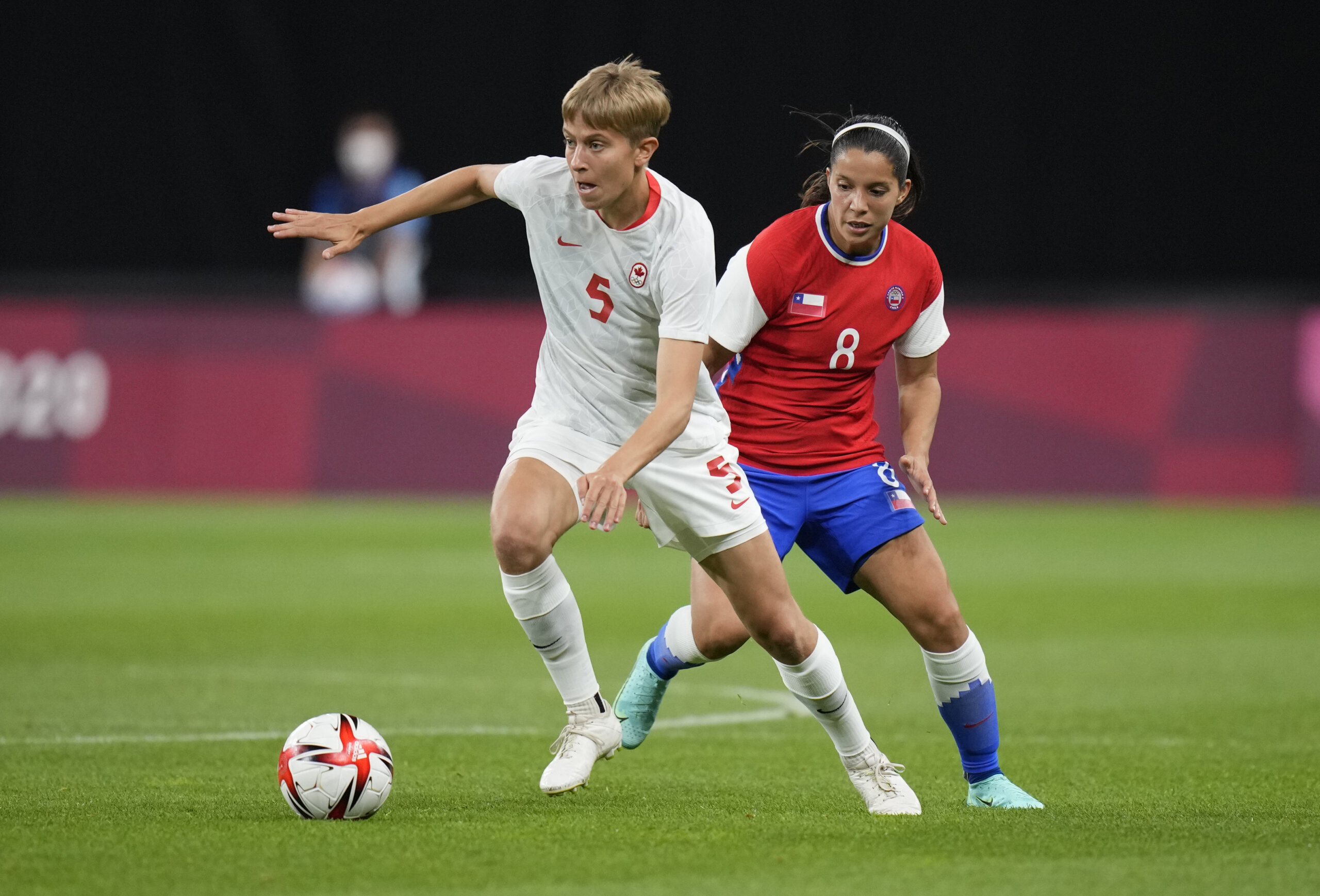
Credit: AP Photo/The Canadian Press
This year, trans kids got an Olympic gold medallist to look up to. Just days after becoming one of the first openly trans or non-binary people to compete at the Tokyo Olympics, Canadian soccer player Quinn made history again when their team won Olympic gold, becoming the first openly trans person to win an Olympic medal.
The image of the 25-year-old from Toronto posing with their medal and top surgery scars became a symbol of inclusivity and inspiration for a generation of young trans kids everywhere. The message their success sends is clear: trans people belong in sports.
But Quinn wasn’t the only LGBTQ2S+ athlete to celebrate a banner year. Also in Tokyo, Alana Smith skated straight into our hearts with their joyful performance in the Games’ skateboarding event. While they didn’t win a medal, they won a bounty of new fans with their they/them board and joyful attitude in response to falling and getting back up. Laurel Hubbard spoke out against transphobia and represented New Zealand with pride. The cherry on top: the International Olympic Committee finally came around to making a better trans inclusion policy for trans athletes who want to participate in future games.
On the basketball court, Layshia Clarendon redefined how the WNBA and media talks about queer and trans athletes. And while the WNBA has been a bastion of queer representation for years, other leagues started to make progress for queer representation in 2021. Las Vegas Raiders defensive end Carl Nassib came out as the first openly gay active NFL player, and Josh Cavallo broke barriers as the first openly gay top-tier male soccer player.
As shady bitches do battle against trans kids’ right to even participate in sports, we can look to these icons to see that queer and trans people don’t only deserve to survive in sports—we deserve to thrive.
—Mel Woods, news writer
Sarah McBride and the trans politicians fighting from the inside
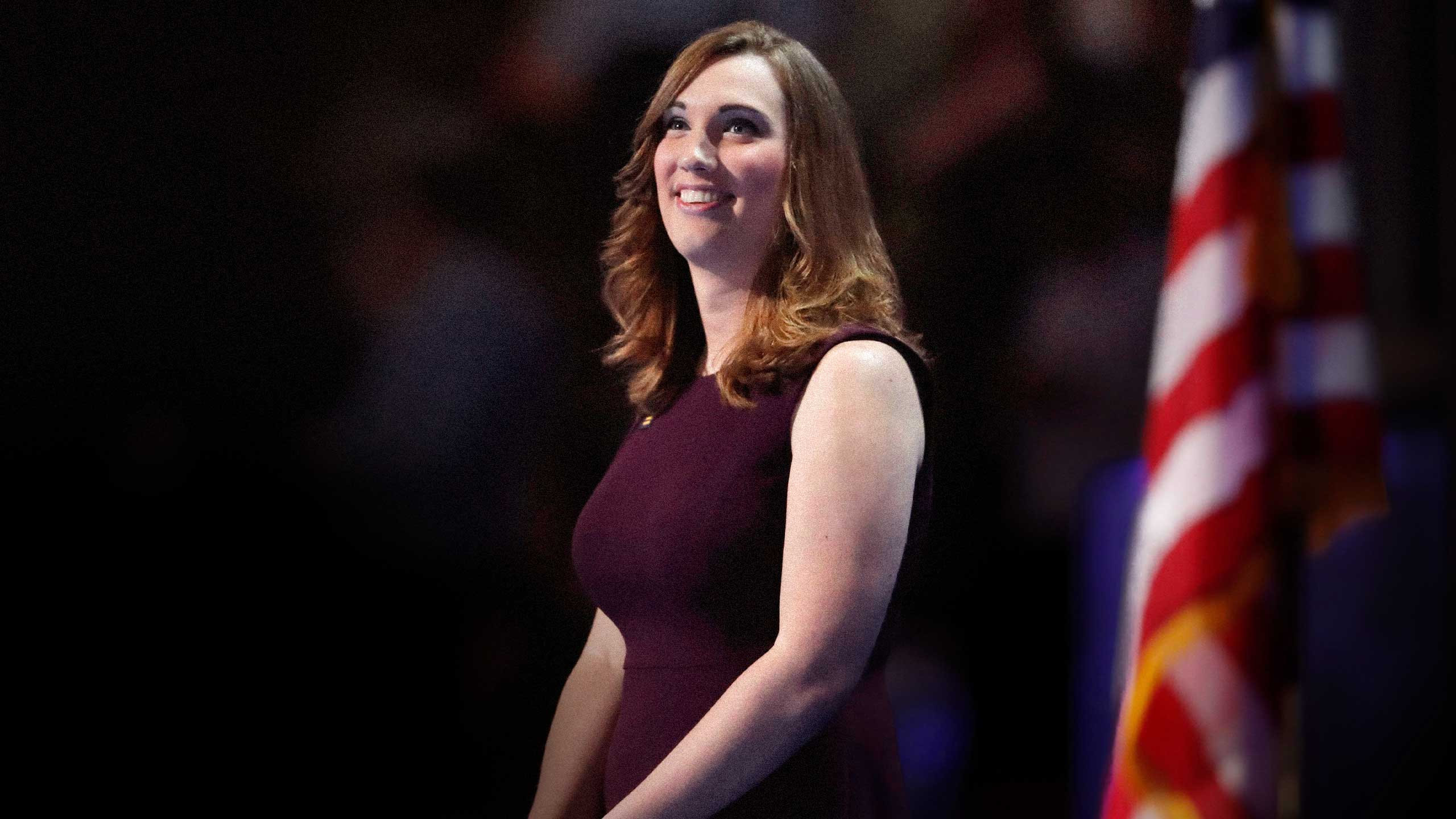
Credit: AP Photo/Paul Sancya; Brian Wong/Xtra
Last November, Sarah McBride made history when she won her race for Delaware state senator, becoming the highest-ranking trans official in the U.S. and the country’s first trans state senator ever. The timing was apt: McBride took office this January, as American lawmakers began planning their campaign against trans youth. By the end of her first year as state senator, dozens of bills had been tabled.
When McBride spoke with Xtra’s Max Gao in March, she expressed hope that she could make a difference from the inside. “I found that politics was the place in those history books where you could make the most amount of change for the most number of people,” she says. “I hoped that perhaps I could make more space for people to live their lives more freely and fully, including people like me.” One of her major priorities: health equity, particularly for LGBTQ2S+ communities.
McBride wasn’t the only trans elected official trying to make waves in the country. This year, more than 1,000 LGBTQ2S+ officials will have served concurrently in the U.S. And elected alongside McBride last year were Taylor Small, to the Vermont state legislature, and Kansas’ Stephanie Byers, the first openly trans state lawmaker of colour. Their presence in state politics has already made an impact: in May, Byers and other Kansas state lawmakers worked to put a stop to a ban on trans kids from playing team sports. It’s yet again proof that when our communities are reflected in the halls of power, incredible change can happen.
—Erica Lenti, senior editor
Shady bitches 
Caitlyn Jenner, the celebrity trans face of anti-trans sports bills
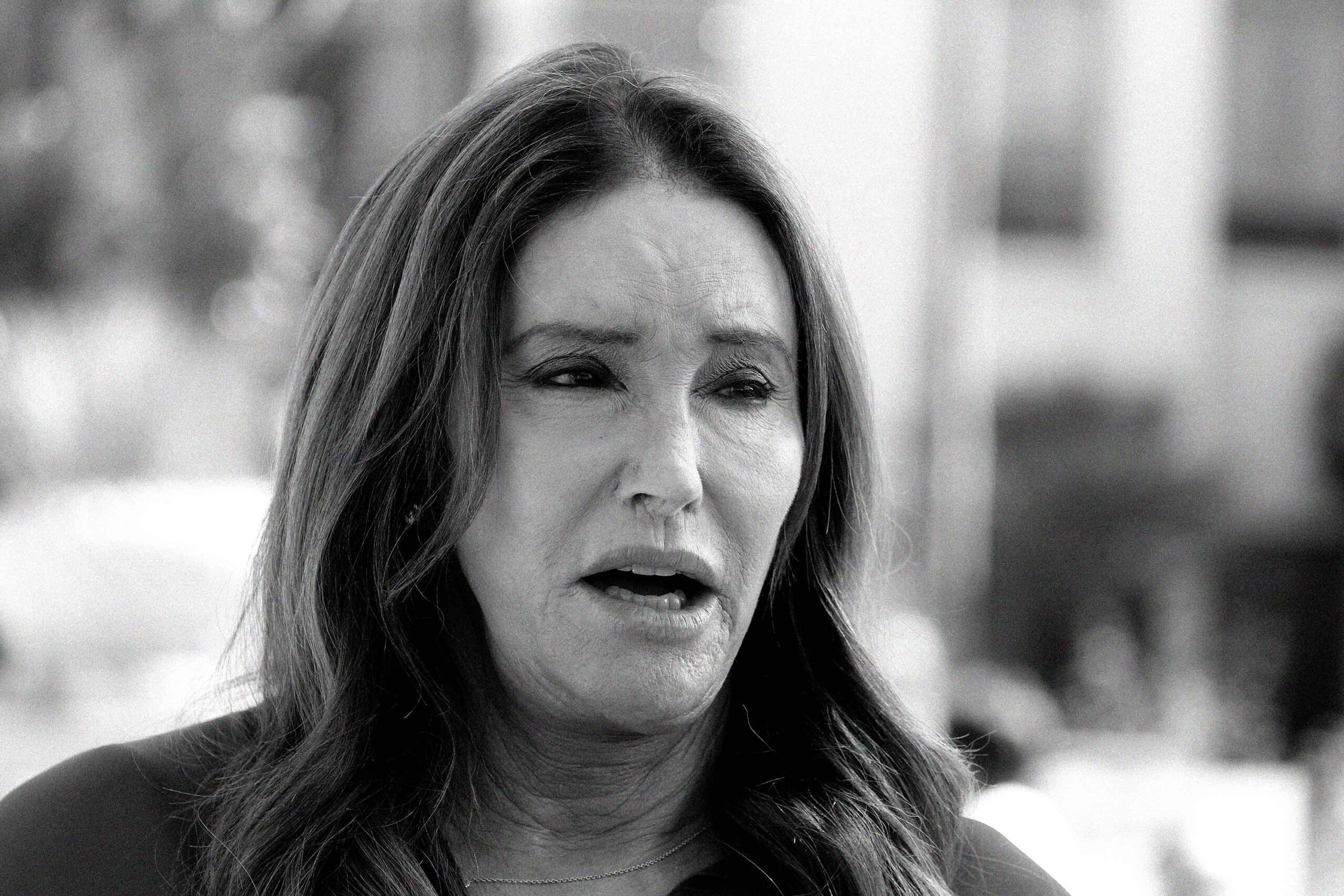
Credit: AP Photo/The Canadian Press
She’s back—and yes, she’s being problematic again. You may remember Caitlyn Jenner from such hits as supporting Donald Trump in hopes that he would uplift LGBTQ2S+ Americans, or the time she told (married) lesbian talk-show host Ellen DeGeneres that she was a “traditionalist” when it came to marriage equality.
This year, 72-year-old Jenner came for members of her own community. The former Olympic gold medallist announced during her gubernatorial run in California that she opposes trans girls playing on sports teams that align with their gender identity. “I’m clear about where I stand. It’s an issue of fairness and we need to protect girls’ sports in our schools,” Jenner tweeted.
Those comments came on the heels of brewing anti-trans sentiment in the U.S. Across the country, lawmakers tabled a record number of anti-trans bills this year, primarily targeting trans youth and young adults’ access to health care and equity in team sports. More than 100 bills were introduced across 37 states in all regions of the country.
And while Jenner may have hoped supporting Republican efforts to oust trans kids from sports leagues would win her increased support, she ultimately lost her campaign for governor—a lose-lose situation for everyone involved, especially trans youth.
—Erica Lenti, senior editor
Dave Chapelle and the anti-trans forces of pop culture and media
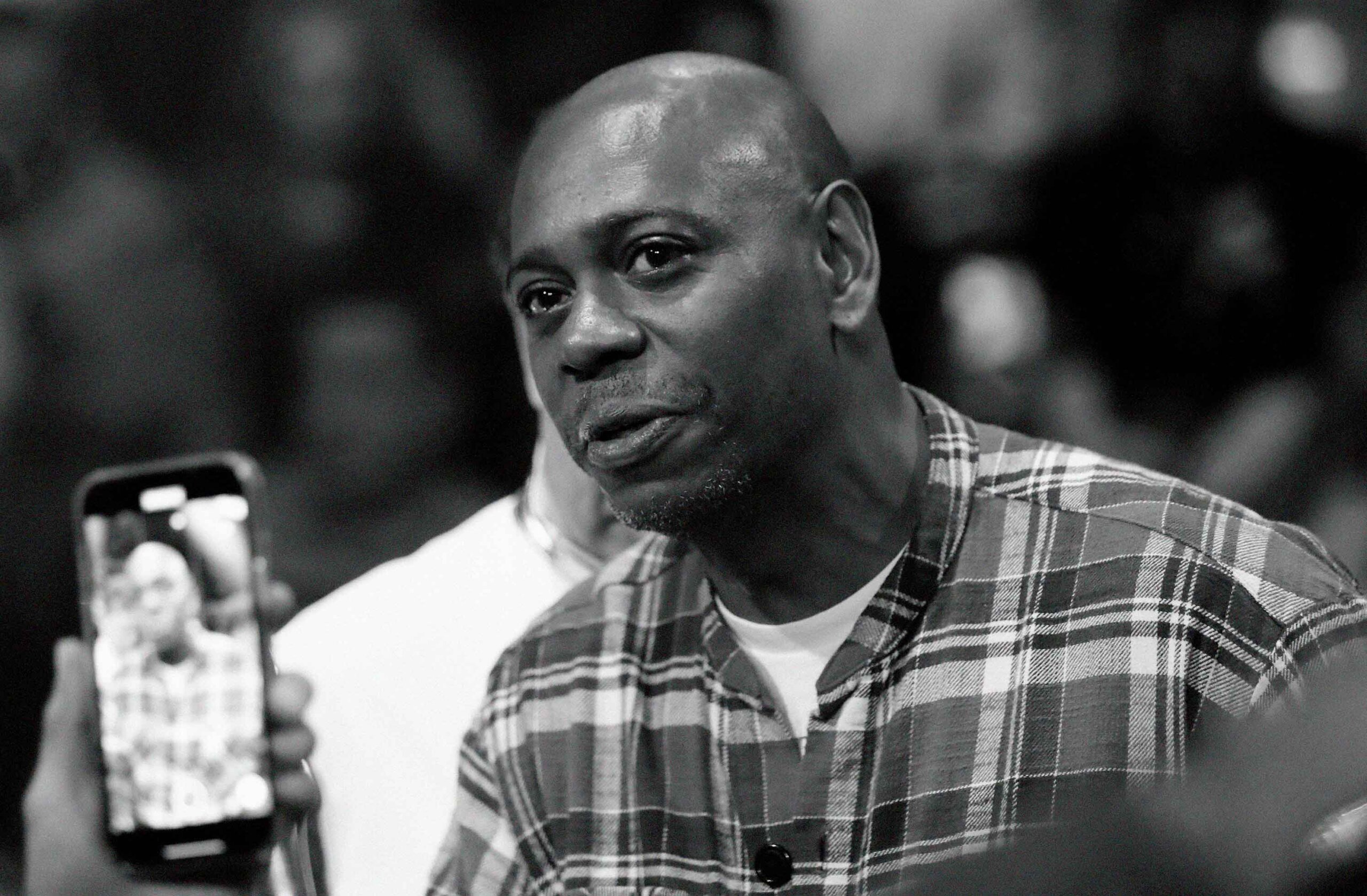
Credit: AP Photo/The Canadian Press
Trans folks have learned to gird ourselves and prepare for the worst whenever noted transphobe and once beloved kids lit author J.K. Rowling is trending online. Seeing Rowling’s name in the Twitter topics is rarely a good thing. But in 2021, she was joined by a merry band of bigotry, transphobia and hate from some shiny new sources.
Chief among them was comedian Dave Chappelle, who continued his long-standing obsession with trans womens’ bodies in the most horrific way in his latest Netflix special. Chappelle used what was ostensibly a comedy show to make crude remarks about trans people, and accuse us of “punching down” on him. He also posited some “us and them” narrative between Black and LGBTQ2S+ people—as if Black LGBTQ2S+ don’t literally exist (and face alarmingly high rates of violence).
And despite all of the chatter about Chappelle being “cancelled” in the wake of criticism of the special, he’s still selling out shows, touring across North America and getting plenty of support from famous friends. And while Netflix workers took a stand against Chappelle and walked out, two of the most outspoken Netflix workers who called out the service are no longer with the company.
Meanwhile, the media over in the United Kingdom (a.k.a. TERF Island) continues to do the absolute worst when it comes to covering trans people with any sort of empathy or nuance. Alarmingly, that approach bled over into Canada this year with a series of pieces, some of which were re-shared by acclaimed Canadian author Margaret Atwood on social media. While Atwood’s no Rowling when it comes to malice against trans folks, her easy sharing of these dangerous ideas shows just how they’ve weaseled their way into our pop culture and media.
—Mel Woods, news writer
Justice Samuel Alito and the U.S. Supreme Court’s steady erosion of LGBTQ2S+ rights
To paraphrase the great Sufjan Stevens: the Supreme Court gives, and it takes and it takes and it takes. One year after a groundbreaking ruling securing legal equality for LGBTQ2S+ Americans, SCOTUS conservatives used their battering ram of a six-seat majority to begin what some members of its own bench hope will be the demolition of queer and trans rights. In June, judges ruled unanimously in favour of a Christian adoption agency that refused to place children in same-sex households in Fulton v. the City of Philadelphia. Although LGBTQ2S+ advocacy groups noted that the ruling was a narrow decision made on procedural grounds—namely whether Philadelphia had a right to refuse the agency a contract under its nondiscrimination laws—Justice Samuel Alito wanted to go even further. In a searing 77-page rebuke of the majority opinion, he argued for a dramatic expansion of protections for people who wish to discriminate on the basis of their religion.
While Alito is just one member of the court, he has found powerful allies in his opposition to LGBTQ2S+ equality. When the Supreme Court declined to hear an appeal filed by former Rowan County, Kentucky, clerk Kim Davis, who was fired from her job in 2015 for declining to sign marriage licences brought by same-sex couples, Justice Clarence Thomas joined him in censuring their colleagues. In a joint opinion, the judges claimed the court’s refusal to vindicate Davis was evidence that the nationwide legalization of marriage equality in Obergefell v. Hodges
had resulted in “ruinous consequences for religious liberty.” Alito and Thomas further signalled they would be willing to endorse overturning their own same-sex marriage from just six years prior were a challenge to Obergefell brought before them.
Fears that the court will do something as drastic as negating millions of same-sex marriages are as of yet unfounded, but the Supreme Court is continuing to demonstrate its willingess to undercut LGBTQ2S+ equality in favour of bigotry. Earlier this month, the court’s right-wing bloc expressed support for allowing Christian schools in Maine that refuse to hire queer and trans teachers to be part of the state’s taxpayer-funded voucher program. Justice Brett Kavanaugh, who recently attempted to exploit Obergefell to undercut abortion rights, said anti-gay campuses merely want “equal treatment” under the law.
A decision in the case is expected next spring, and the result could effectively force American citizens to fund religious discrimination. With conservatives controlling the bench for years—maybe even decades to come—these small chips could shatter the foundation of LGBTQ2S+ legal equality, as the future of reproductive access in the U.S. also hangs in the balance.
—Nico Lang, contributing editor
Tamara Jansen and the anti-LGBTQ2S+ politicians gatekeeping LGBTQ2S+ rights
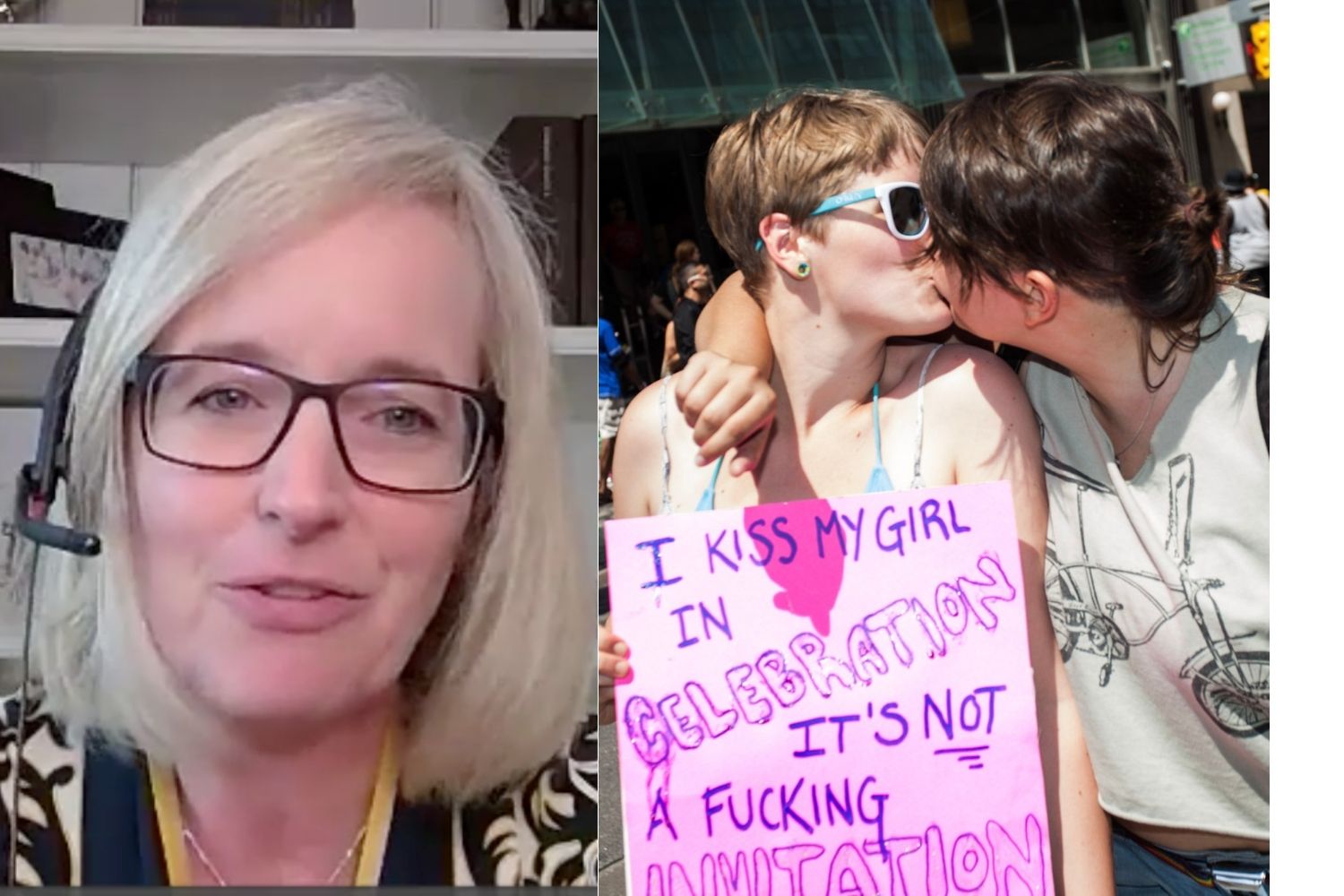
Credit: Parlvu; Tanja-Tiziana Burdi/Xtra
Between banning conversion therapy and resolving to reduce its discriminatory blood ban even further, Canada introduced some equitable policies for LGBTQ2S+ Canadians this year. Still, not everyone was on board. While the country’s final bill to introduce a conversion therapy ban ultimately passed with little fanfare this fall, earlier attempts to outlaw the practice didn’t go so smoothly.
In April, the House of Commons debated a draft of Bill C-6, which sought to ban conversion therapy for minors. During the debate, Conservative MP Tamara Jansen pushed back, citing a conversation she’d had with a woman who had dealt with unwanted “lesbian activity.
“Charlotte, a young woman in Calgary who’s involved in lesbian activity struggled with self-worth and depression,” Jansen said. “She reached a point in her life where she did not want to continue with her lesbian activity.” Jansen prefaced her anecdote with a bible quote which seemed to refer to LGBTQ2S+ people as “unclean.”
On Twitter, many pointed out that Jansen’s comments were not only unclear—what exactly was this so called lesbian activity? Experiencing soul-crushing longing? Owning three cats?—they were also deeply homophobic. Jansen eventually half-apologized for her remarks.
She wasn’t the only politician to spew homophobic and transphobic rhetoric this year. Maxime Bernier and his People’s Party of Canada (PPC) colleagues injected this year’s election cycle with a strong dose of anti-trans policies and talking points.
As recently as 2019, Bernier himself has tweeted about the “transgender fad.” While this year he clarified that he believes trans Canadians deserve respect, he also made sure to specify that the radical trans activists had an agenda that aimed to curtail the rights of women, children and gays and lesbians. (No word here either on what exactly the radical trans agenda entails—getting a job in IT? Changing one’s name to a one-syllable word like “Meat”? Hard to say.) Depressingly, more than 800,000 Canadians were willing to get on board with the PPC’s bigotry when they voted for the party in this year’s election.
—Ziya Jones, senior editor

 Why you can trust Xtra
Why you can trust Xtra